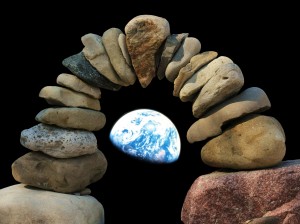
This past Tuesday, sitting with my spouse, Kip, in a packed sports bar watching the World Cup soccer match between the U.S.A. and Belgium, I was delighting in the comedy of the situation.
The gathering, mostly young people, many of them decked out in red, white and blue, beers in hand, crowded around the large flatscreen televisions, cheering and groaning together as though they were many bodies ruled by one mind.
The excitement was palpable. Maybe, just maybe the U.S. could pull off an upset and defeat the Belgian team to move on to the next round. Anything seemed possible in this World Cup that has already seen the dethroning of some of the world’s soccer powerhouses.
Thanks in large part to the extraordinary performance of their goal keeper, Tim Howard, the U.S. team managed to hold their own through the 90 minutes of play, and when the whistle sounded to end regular play the game was tied 0-0. During the break before overtime, we all took a breather. The T.V. volume was turned down, the bass-heavy music turned up, people mingled and, in the case of several of us women, stood in line for the restroom.
Not long after the 30 minutes of extra time began, Belgium scored its first goal, and the mood of the crowd instantly plummeted from excitement to disappointment, and then to resignation when Belgium scored yet again. A man behind me, angry, began using expletives more liberally and another young man within ear shot, clinging to the possibility of victory, said, “You gotta believe!”Continue Reading


 We’ve had construction going on at our house since October and our first floor living space was in disarray until well into December. Consequently, I wasn’t able to get our holiday decorations up until a few days before Christmas, and I decided to leave them up for awhile to make up for lost time.
We’ve had construction going on at our house since October and our first floor living space was in disarray until well into December. Consequently, I wasn’t able to get our holiday decorations up until a few days before Christmas, and I decided to leave them up for awhile to make up for lost time.



